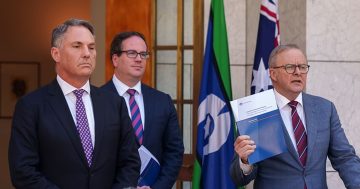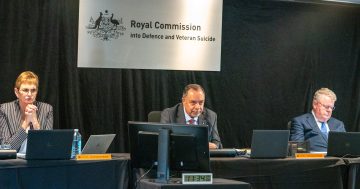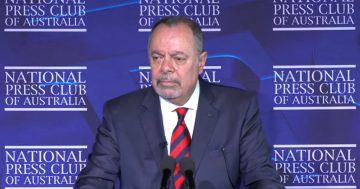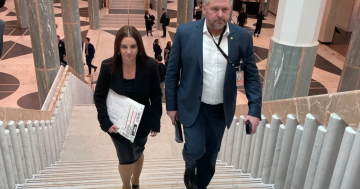
At the end of May this year, DVA had a backlog of 41,799 claims. Photo: ANAO.
The Federal Government has apologised to the defence community for the overly complex compensation and rehabilitation systems of the Defence and the Veterans’ Affairs departments that have been blamed for some suicides.
The processes will be overhauled to provide veterans with greater and simpler access to services.
Responding on Monday (26 September) to the Royal Commission into Defence and Veteran Suicide’s recently published Interim Report, Veterans’ Affairs Minister Matt Keogh acknowledged the flaws in the system and said the government would do better.
“There’s no doubt some veterans and families have not had a good experience dealing with Defence and the Department of Veterans’ Affairs, and have not been able to access the support they deserve. For that, we are sorry,” Mr Keogh said in Parliament.
“Our government is committed to the task of saving lives and ensuring a better future for our defence and veteran communities. After years of reports, too many deaths, too many lives changed for the worse and endless discussion, it’s time to get on with it.
“It is clear that things are not right. On behalf of the Australian Government, I say sorry.”
In their interim report, Royal Commissioners Nick Kaldas APM (Chair), James Douglas KC and Peggy Brown AO made 13 recommendations aimed at rectifying systemic problems and helping prevent suicide among serving and ex-serving Australian Defence Force members.
Among those recommendations are calls for legislative reform, simplification of the claims process, legal protections, changes to public interest immunity, and greater access to information.
“It is clear to us that Australia’s veteran compensation and rehabilitation legislative system is so complicated that it adversely affects the mental health of some veterans – both serving and ex-serving ADF members – and can be a contributing factor to suicidality,” the Commissioners stated.
“We recommend that the Australian Government should, without delay, implement legislative reforms to simplify and harmonise the veteran entitlement system. We have heard evidence and received submissions that suggest that the system is too complex.”
To date, the Royal Commission has received more than 2,000 submissions and conducted 178 private sessions hearing testimony from 208 witnesses.
At the end of May this year, DVA had a backlog of 41,799 claims.
“This must not continue. DVA should eliminate the claims backlog by March 2024,” commissioners said.
“The Australian Government should provide the necessary resources to DVA to allow them to reduce the backlog.”
The minister agreed that urgent and immediate action is required.
Labor committed during the election campaign to abolishing artificial staffing caps across the public service.
“The work that DVA undertakes is complex. We need the best-trained individuals to work on processing claims and supporting veterans, yet the cap resulted in a counter-productive reliance on labour-hire arrangements, with higher staff turnover and higher costs,” Mr Keogh said.
“The cap is now removed. This means staff have job security. It will also mean that staff are processing claims more efficiently, as they build their own knowledge base in a complex system.”
Five hundred more staff are currently being recruited to help with the DVA processes.
But the government has not accepted all of the commissioners’ recommendations. Those dealing with parliamentary privilege and public interest immunity have been “noted” only.
“We note Recommendation 7, recognising the importance of Royal Commissions being able to thoroughly investigate and provide recommendations in relation to their terms of reference while protecting freedom of speech in the Parliament,” Mr Keogh said.
“Parliamentary privilege is a well-established concept that many Royal Commissions have engaged with in the past without coming into conflict with the Parliamentary Privileges Act.
“There are alternative approaches available to the Royal Commission to engaging with materials to which parliamentary privilege might apply.
“We also note Recommendation 8, recognising the need for Royal Commissions to have access to information they need to ensure their work is effective and efficient. The government will improve policies and practices to streamline and introduce additional rigour around the use of public interest immunity claims in Royal Commissions.”
Submissions to the Royal Commission remain open until 13 October 2023.
Currently serving ADF members and their families can reach out to the ADF All-hours Support Line, available 24/7 on 1800 628 036.
Veterans and family members can access Open Arms veterans and families counselling service on 1800 011 046.





















